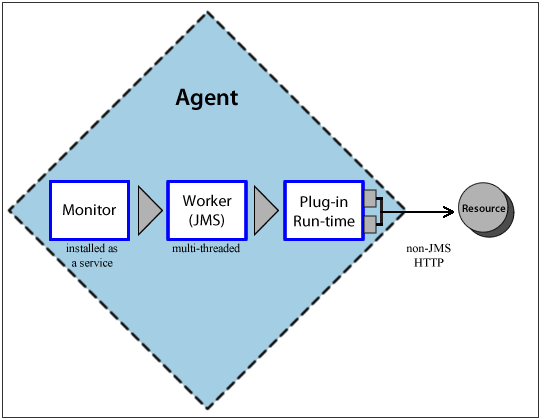Agents play a central role in the uDeploy architecture. An agent is a lightweight process that runs on a deployment-target host and communicates with the uDeploy server. Agents perform the actual work of deployment which relieves the server from the task. All processes—packaging, configuration, deployments, and so on—requested by the uDeploy server are executed on hardware assigned to agents. Once an installed agent has been started, the agent opens a socket connection to the uDeploy server. Communication between server and agents uses a JMS-based (Java Message Service) protocol and can be secured using SSL, with optional mutual key-based authentication for each end-point. This communication protocol is stateless and resilient to network outages (the benefits of statelessness are discussed below).
While we characterize an agent as a single process, technically an agent consists of a worker process and a monitor process. The worker is a multi-threaded process that performs the actual deployment work after receiving commands from the server. Work commands come from plug-in steps which provide seamless integration with many third-party tools. The monitor is a service that manages the worker process--starting and stopping, handling restarts, upgrades, and security, for example. Agents are rarely upgraded because their functionality is derived from plug-ins, which can be upgraded at will. Once an agent is installed, it can be managed from the uDeploy web application.
Agents are an important part of uDeploy's scalability. By adding more agents, the throughput and capacity of the system increases almost exponentially and so can scale to fit even the largest enterprise.


